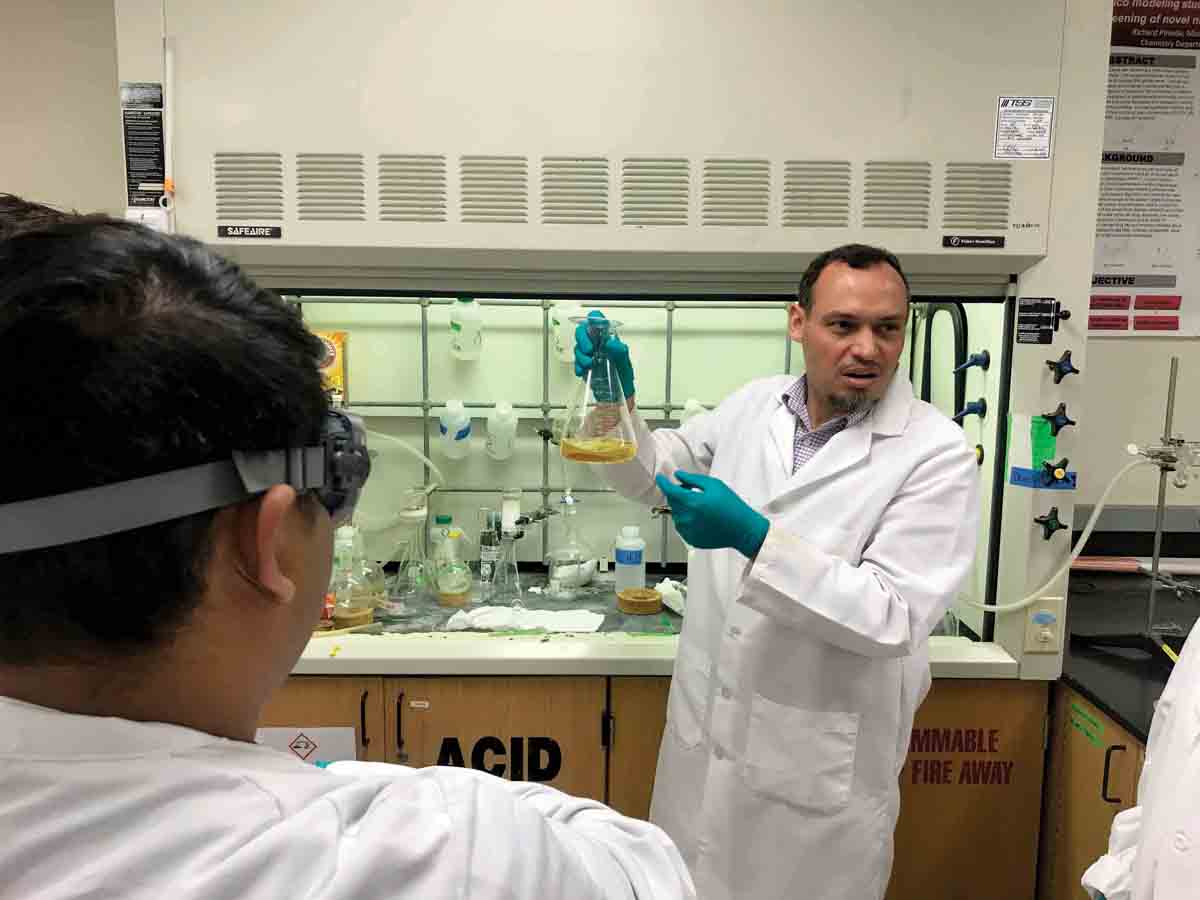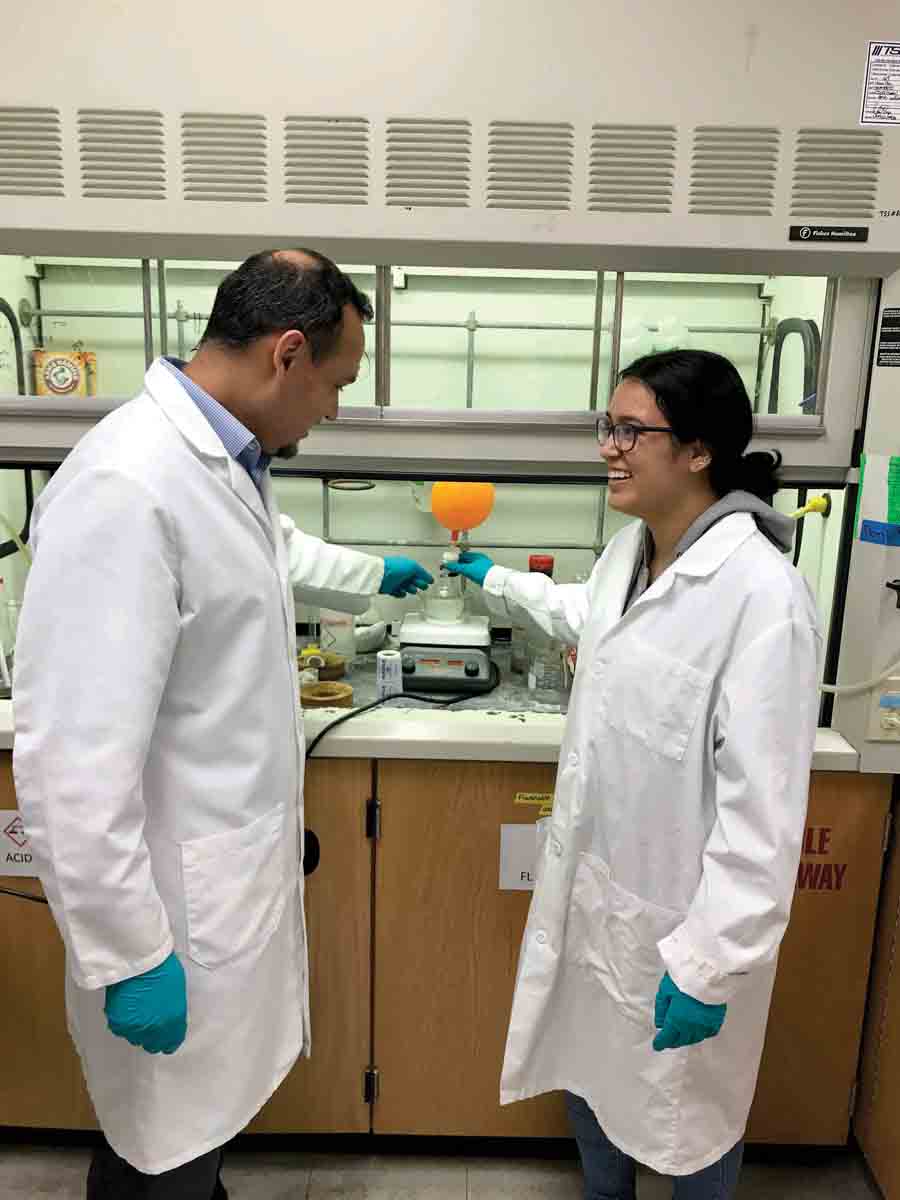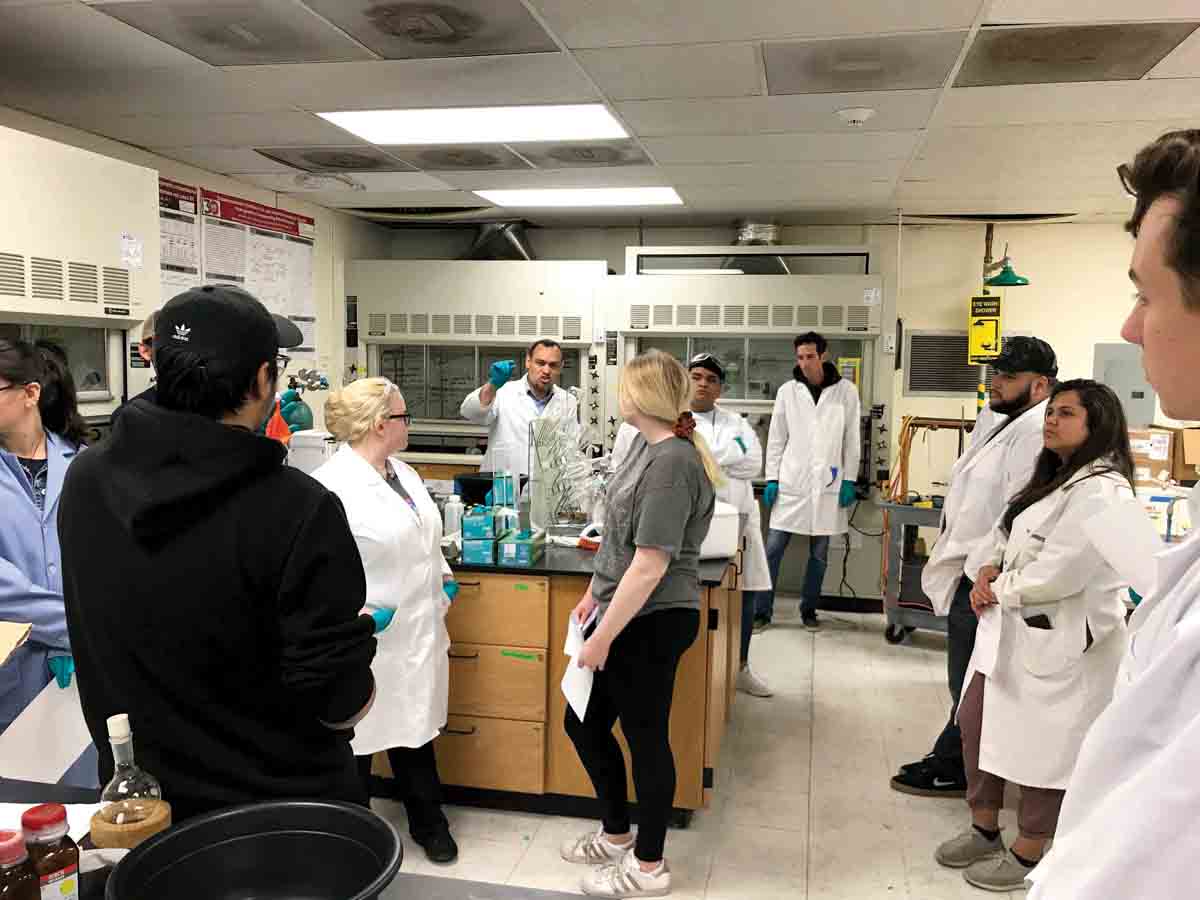
Professor Ahmed Awad teaches a laboratory chemistry class.
By Julie Drake
When CSUCI's Chemistry Professor and Faculty Director for Student Research Ahmed Awad was a child, he saw his grandfather carrying a bag filled with pills — each a different shape and color. He asked his grandfather why he took the pills.“They help me feel better,” his grandfather said.
Awad later learned that those pills contained chemical compounds that could effectively treat diseases and improve bodily function.
“That sparked my curiosity about chemistry and led me to pursue undergraduate studies in the field,” Awad said.
 During his studies, Awad discovered organic chemistry and its role in designing molecules
with a wide range of useful applications, such as pharmaceutical drugs in medicinal
chemistry, he added.
During his studies, Awad discovered organic chemistry and its role in designing molecules
with a wide range of useful applications, such as pharmaceutical drugs in medicinal
chemistry, he added.
Awad studied chemistry at Cairo University in Egypt. He graduated with honors as one of the top two students in his class. He then received a scholarship to pursue his doctoral studies in Germany.
“During my studies at Ulm University in Germany, I focused on investigating novel synthetic nucleic acid molecules, known as oligonucleotides, as potential therapeutics for pancreatic cancer,” he said.
After he earned his doctorate, Awad joined the Department of Biochemistry and Molecular Biology at Iowa State University as a postdoctoral fellow, where he continued his research on synthetic oligonucleotides for gene imaging.
After two years in Iowa, he accepted another postdoctoral position at the University of California Santa Barbara. In his second year at UCSB, Awad learned about CSUCI, a newly established four-year college less than 60 miles away from UCSB.
“I was drawn to its small size and its mission as a public institution that values and embraces student research,” he said.
Awad joined the CSUCI faculty in the Fall of 2007. He has since mentored numerous undergraduate students in medicinal chemistry research and witnessed firsthand how this experience transformed many of their lives, he said.

Professor Awad explains laboratory protocol and chain reactions to students.
“In my new position as Faculty Director for Student Research, I am committed to strengthening a cross-disciplinary campus culture that values and rewards undergraduate research, while ensuring that opportunities and resources are accessible to a broad and diverse range of students.” he said.
CSUCI senior Lillian Straw, who graduated in May with a degree in health science and a minor in chemistry, and Connor Blackwell, a research associate in his fourth year of college, lead a research team of five students plus Awad.
“Our project pertains to the modification of the chemical structure of the cancer drug capecitabine,” Straw said.
They work closely with Awad and meet once a week for several hours at a time to brainstorm and establish solutions to whatever problems arise.
“While Dr. Awad is very involved, he also is hands-off in the sense that he allows students to structure a lot of the work and attempt solving problems on their own before assisting,” she said. “Dr. Awad is an incredible mentor for this reason.”
Blackwell agreed.
“Dr. Awad has been an incredible mentor throughout this research experience, and I highly recommend him to anyone interested in research within the biotech or chemistry-related fields,” he said.
